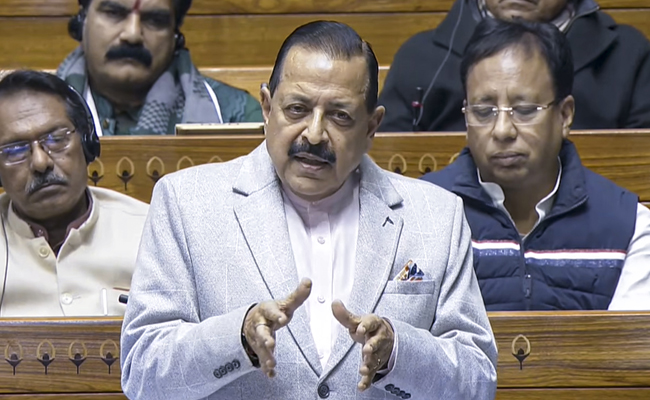Bangaluru: You may be smart in your profession or business, but a moment of carelessness with your smartphone can cost you your hard-earned money in minutes. Cybercriminals are using sophisticated techniques to trick people and steal money from their accounts.
In Bengaluru, many people fall victim to scams through attractive or threatening messages on WhatsApp, Telegram, email, and other platforms, losing significant amounts of money. In the last four months alone, over a thousand complaints have been filed about such incidents.
Filing a complaint often doesn't result in recovering the lost money. It's extremely difficult for the police to track down and apprehend these cybercriminals. The chances of recovering stolen money are slim to none.
Cybercriminals use various tactics to lure their victims. You might receive messages promising easy earnings, part-time jobs, share trading opportunities, or lottery winnings. These messages often include links. Clicking on these links can compromise your phone or computer, allowing scammers to hack your accounts and steal your money. They are also skilled at tricking you into providing one-time passwords (OTPs) to complete fraudulent transactions.
Some scammers might call you, using persuasive language to extract personal information and OTPs. Once you provide these details, your money is as good as gone. They can also use threatening messages to intimidate you into complying with their demands.
The police advise people to be vigilant and not fall for these scams. Once hackers have your details and access your account, it's almost impossible to recover the stolen funds. The cyber fraud network is vast and intricate, making it difficult to pinpoint the source of the fraud.
Ironically, well-educated professionals, including tech experts, are often the victims of these scams.
To combat this issue, the Bangalore City Cybercrime Police have launched a campaign to raise awareness about cyber fraud. They aim to educate the public on how cybercrime occurs, how cybercriminals can steal accounts without the victim's knowledge, and what precautions to take to stay safe.
Here are some key points from the cybercrime police to help protect yourself:
- Cybercrime Defined: Cybercrime involves the use of computers, networks, or electronic devices to commit offenses. It's a crime under the Information Technology Act 2000.
- Motives: Cyber crimes are usually committed to make illegal money, though some are intended to defame individuals.
- Prevention Tips: Be cautious of unsolicited messages and links, don't share personal information or OTPs with unknown callers, and stay informed about the latest cyber threats.
By staying alert and following these precautions, you can protect yourself from falling victim to cyber fraud.
Common Methods Used by Fraudsters
- Share Trading Scams
Fraudsters contact victims through WhatsApp or Telegram, promising high profits from trading. They lure people into downloading trading apps and initially provide small profits to gain trust. Once the victims deposit significant amounts of money, the fraudsters disappear with the funds.
- FedEx Courier Fraud
Scammers pose as officials from TRAI, CBI, Customs, or the police. They call victims, accusing them of criminal activity like drug involvement or money laundering, and threaten arrest. The victims are then tricked into providing bank account details and other personal information, which the fraudsters use to transfer money.
- Online Part-Time Job Scams
Victims are contacted via WhatsApp or Telegram with offers of easy part-time jobs, such as liking YouTube videos or rating hotels. After completing small tasks and receiving payments, victims are enticed to invest more money with promises of higher returns, only to be defrauded.
- Honeytrap Scams
Scammers, often posing as women, make video calls and engage in explicit conversations, recording the interaction. They then blackmail the victim by threatening to release the footage unless money is paid. The fraudsters may also impersonate officials or reporters to further intimidate the victim into paying.
- Fake Insurance Fraud
Fraudsters contact victims pretending to represent top insurance companies through websites like WhatsApp or Telegram. They offer false information and promises of high returns, convincing victims to deposit large sums of money into various accounts.
- Matrimonial Fraud
Scammers connect with victims on social media, particularly targeting divorced women. They build intimacy, propose marriage, and then claim to need money for various reasons. The victims transfer funds, believing the scammer is abroad and will soon visit them.
- OLX Fraud
Scammers create fake accounts on OLX, listing vehicles at low prices and using photos of military or high-ranking officials to appear legitimate. They claim the vehicles are at the airport and require immediate payment, deceiving victims into transferring money.
- Fake Web Link or OTP Scams
Fraudsters send links to victims, making them click under false pretenses. Once the link is clicked, they obtain OTPs and access bank accounts to transfer money. They might also send links claiming the bank account will be blocked, prompting victims to provide account details.
- Loan App Fraud
Fraudsters target individuals in urgent need of money, requesting documents like Aadhaar to provide loans. They charge exorbitant interest rates and, if payments aren't made, they harass victims by distorting their photos and sending them to their contacts. This harassment has led to some victims committing suicide due to the unbearable pressure.
When Scammers Call...
- Be Alert!
- If you receive a call promising easy money from a stranger, hang up immediately.
- If you get a threatening call from someone claiming to be a government official or police officer, hang up and report the incident to the nearest police station.
How to Be Safe
- Use Strong Passwords
- Create unique and complex passwords for all your accounts.
- Be Cautious with Websites
- Only visit reputable websites. Avoid entering personal information on unknown sites.
- Avoid Suspicious Apps
- Do not download or use apps that request personal information without verifying their legitimacy.
- Don’t Click Unknown Links
- Avoid clicking on links from unknown sources on social media or in messages.
- Keep Software Updated
- Regularly update your devices and software to protect against vulnerabilities.
What to Do Immediately if You Are Scammed
- Call the Cybercrime Helpline
- Dial 1930, a cybercrime helpline available across all states in India, to report the incident.
- File a Complaint Online
- Log into the NCRP portal to file a complaint. If the scam involves financial transactions, the related bank accounts can be frozen immediately.
By following these guidelines, you can protect yourself from falling victim to cyber scams and ensure your personal and financial information remains secure.
Let the Truth be known. If you read VB and like VB, please be a VB Supporter and Help us deliver the Truth to one and all.
Bengaluru (PTI): A woman was booked on charges of obstructing a police inspector from discharging his official duties and threatening to commit suicide if he did not accept her love proposal, police said on Wednesday.
The 45-year-old inspector attached to the Ramamurthy Nagar Police Station here alleged that the woman repeatedly harassed him, they said.
According to his complaint, the harassment began on October 30, when he started receiving calls from an unknown woman from multiple phone numbers.
During these calls, she allegedly spoke incoherently and claimed to have close links with several highly placed individuals, including the Chief Minister, Deputy CM, Home Minister and other political leaders.
Police said the woman sent photographs via WhatsApp purportedly showing herself with these dignitaries and claimed she could use their influence to compel the inspector to accept her proposal. She also allegedly threatened to use her contacts against him if he refused.
ALSO READ: “Bleeding on the road, I begged for help but no one came”: Bengaluru woman recounts husband’s death
The inspector said that he advised her to visit the police station and submit a written complaint if she had any grievance. However, she did not do so and instead continued to repeatedly call and send messages, which disturbed his official duties, the FIR said.
According to the FIR, on November 7, the woman allegedly visited his office and handed over an envelope containing some tablets along with handwritten letters. The letters contained emotionally charged and inappropriate content, and the woman claimed they were written using her blood, indicating obsessive behaviour.
Despite being clearly informed that the number she was contacting was an official departmental number meant for public service, she allegedly continued making unnecessary calls and messages, causing mental harassment and obstruction to his day-to-day duties, he alleged.
During the inquiry, police learnt that the woman had allegedly exhibited similar behaviour with other police and government officials in the past, it stated.
On December 12, she allegedly went to his police station and shouted and threatened to commit suicide and ruin the inspector's career if he did not respond to her proposal, prompting him to lodge a complaint.
"Based on the complaint, a case was registered against the woman under Sections 132 (assault or criminal force to deter a public servant from discharge of duty), 351(2) (criminal intimidation) and 221 (obstructing a public servant in discharge of public functions) of the Bharatiya Nyaya Sanhita at the Ramamurthy Nagar Police Station. The matter is under investigation," police said.





